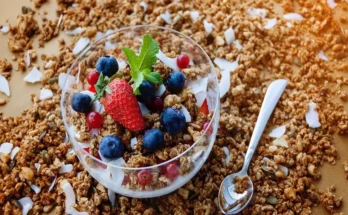In a world where lifestyle diseases have become increasingly prevalent, diabetes stands out as a significant health concern affecting millions globally. Characterized by elevated blood sugar levels, diabetes requires careful management to prevent complications and maintain overall well-being. Alongside medical interventions, incorporating holistic practices like yoga and making mindful dietary choices can play a crucial role in managing diabetes. In this exploration, we delve into the intersection of yoga and diabetes, while also shedding light on the benefits of fruits for diabetics—a nutritious and natural way to support diabetes management.
Yoga and Diabetes: A Synergistic Approach:
Yoga, an ancient practice that combines physical postures, breath control, and meditation, offers a holistic approach to health and well-being. When it comes to diabetes management, yoga’s potential benefits are multifaceted:

- Improved Insulin Sensitivity: Certain yoga poses and practices have been shown to enhance insulin sensitivity, allowing cells to better utilize glucose from the bloodstream.
- Stress Reduction: Stress can have a detrimental impact on blood sugar levels. Yoga’s emphasis on relaxation and mindfulness can help manage stress, which is particularly important for diabetics.
- Weight Management: Regular yoga practice can contribute to weight management—a significant factor in diabetes management. Certain yoga styles and poses focus on increasing metabolism and burning calories.
- Enhanced Circulation: Yoga’s emphasis on stretching and movement can improve blood circulation, benefiting individuals with diabetes who may experience circulation issues. If you have a problem like to make physical relations with a partner, you can buy Fildena 100 and Fildena 120 mg pills to treat that type of issue.
- Mind-Body Connection: Yoga encourages a strong mind-body connection, allowing individuals to better understand their bodies and make conscious choices about diet, exercise, and overall lifestyle.
The Role of Fruit in Diabetes Management:
When it comes to dietary choices for diabetics, the focus is often on controlling carbohydrate intake and managing glycemic index. While it’s important to be mindful of sugar content in foods, fruits can play a valuable role in a diabetic’s diet:
- Nutrient-Rich Content: Fruits are rich in vitamins, minerals, and antioxidants. These nutrients support overall health and help combat potential complications associated with diabetes.
- Fiber Benefits: Fiber-rich fruits can help regulate blood sugar levels by slowing down the absorption of glucose. Fiber also contributes to satiety and supports digestive health.
- Natural Sweetness: While fruits do contain natural sugars, they are often accompanied by fiber, which slows the absorption of sugar. This can result in a gentler impact on blood sugar levels compared to processed sugars.
- Low in Saturated Fat: Many fruits are low in saturated fat and cholesterol, making them heart-healthy choices—a significant consideration for diabetics who are at a higher risk of cardiovascular complications.
Diabetes-Friendly Fruits:
While fruits can be a valuable addition to a diabetic’s diet, some options are particularly suited for their nutritional profile:
- Berries: Blueberries, strawberries, raspberries, and blackberries are low in sugar and high in fiber and antioxidants.
- Citrus Fruits: Oranges, grapefruits, lemons, and limes are rich in vitamin C and fiber. The fiber content helps regulate blood sugar levels and supports digestive health.
- Apples: Apples are a good source of soluble fiber, which can help slow down the digestion of carbohydrates and prevent rapid spikes in blood sugar levels.
- Pears: Pears contain dietary fiber and antioxidants that contribute to improved glycemic control and digestive health.
- Kiwi: Kiwi is packed with vitamin C, fiber, and other nutrients. Its low glycemic index and high nutrient content make it a diabetes-friendly choice.
Balancing Portion Size and Timing:
While fruits offer numerous benefits, portion size and timing are important considerations for diabetics. Eating whole fruits, rather than fruit juices or sugary snacks, is recommended. Additionally, spreading fruit consumption throughout the day and pairing them with a source of protein or healthy fat can help prevent rapid spikes in blood sugar levels.
Conclusion:
Managing diabetes is a multi-faceted endeavor that requires a combination of medical guidance, physical activity, and mindful dietary choices. Yoga, with its emphasis on holistic well-being, can complement medical interventions by promoting stress reduction, improved circulation, and enhanced mind-body connection. Similarly, incorporating diabetes-friendly fruits into the diet can provide essential nutrients, fiber, and natural sweetness without causing significant spikes in blood sugar levels.
By embracing yoga as a part of their lifestyle and making informed dietary choices, individuals with diabetes can navigate the path to improved health and well-being. Remember, each person’s diabetes management journey is unique, and consulting with healthcare professionals, nutritionists, and yoga instructors can provide personalized guidance on creating a holistic approach that best suits individual needs and preferences.



















